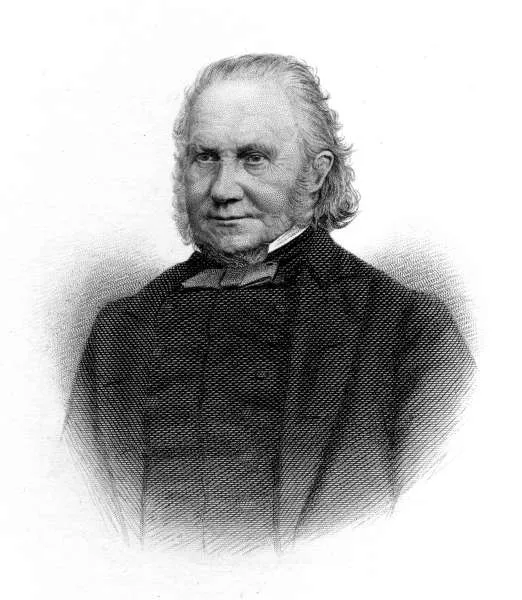
Timeline
Title
Country/Nationality
Thomas Cooper
Thomas Cooper was an English poet and a leading Chartist. His prison rhyme the Purgatory of Suicides (1845) runs to 944 stanzas. He also wrote novels and in later life religious texts. He was self-educated, working as a shoemaker, then a preacher, a schoolmaster and a journalist, before taking up Chartism in 1840. He was seen as a passionate, determined and fiery man.
Cooper was born in Leicester, the son of a working dyer. After his father's death, his mother began business as a dyer and fancy box-maker at Gainsborough, Lincolnshire, and young Cooper was apprenticed to a shoemaker. In spite of hardships and difficulties, he managed to educate himself, and at the age of 23, having been a shoemaker in Gainsborough, managed to open a school there in 1827. He had moved to Lincoln by 1834 and married Susannah Chaloner, a cousin of George Boole He married in 1834; his wife died in 1880. He joined the Lincoln Mechanics' Institute in 1834 and shortly afterwards was on the Committee of Institute. He probably continued on the Committee until he left Lincoln in 1838.
After journal work in Lincoln and London, Cooper joined the staff of the Leicestershire Mercury in 1840. Leicester under his leadership became a Chartist stronghold, with its own journals, such as the Commonwealthman, and a school for adults. He became a leader and lecturer among them and in 1842 was imprisoned in Stafford for two years after riots in the Staffordshire Potteries, where he wrote his Purgatory of Suicides, a political epic. However, Cooper abandoned full-time radicalism on his release.
In his efforts to publish this work after his liberation he came to the notice of Benjamin Disraeli and Douglas Jerrold. Through Jerrold's help, the work appeared in 1845, and Cooper then turned his attention to lecturing on historical and educational subjects.
In addition to various papers with which he was connected, Cooper in 1850 ran Cooper's Journal, but only a few issues appeared. At the same time he adopted sceptical views, which he continued to hold until 1855, when he reconverted to Christianity, joined the Baptists, and was a preacher among them. Though still calling himself a Chartist, he sought to earn a living and a reputation as a writer. In addition to his poems, he wrote several novels, although those like Alderman Ralph (1853) failed on both counts.
Having abandoned his religious beliefs at the time of his imprisonment, Cooper's next thirty years were spent as a lecturer in defence of Christianity, attacking the evolutionary theories of Charles Darwin and Ernst Haeckel. He authored Evolution, The Stone Book, and The Mosaic Record of Creation (1878), which argued for creationism and rejected evolution.
Though impulsive, Cooper was an honest, sincere man. His autobiography (1872) is seen as a minor Victorian classic. In his later years he settled into being an old-fashioned Radical. His friends in 1867 raised an annuity for him, and in the last year of his life he received a government pension. He died in Lincoln on 15 July 1892 and was buried there.
Books by Thomas Cooper

The Bridge of History Over the Gulf of Time
Written by the former skeptic, poet, and scholar, Thomas Cooper, The Bridge of History Over the Gulf of Time admirably sets forth a winsome defense of Christianity. Written as the substance of fourteen years of lectures, at the request of his hearers...

Bridge of History Over the Gulf of Time: A Popular View of the Historical Evidence for the Truth of Christianity
This book presents a historical defense of Christianity, arguing for its truthfulness through a systematic analysis of evidence from the past. The author, a former skeptic, meticulously traces the development of Christianity throughout history, exami...